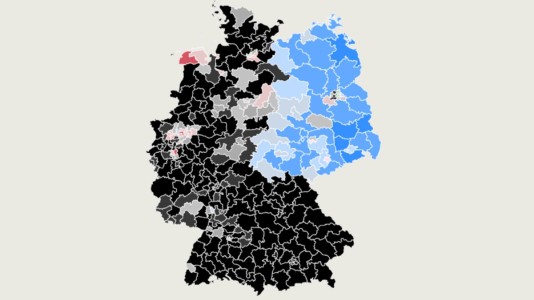Although the global plastic crisis is little discussed compared to other hot-button issues like war and climate change, the problem is growing dire, with the latest data from Germany showing a shocking rise in a banned toxic plasticizer in the urine samples of kindergarten children.
The results of the study have been making headlines in Germany after the State Office for Nature, Environment and Consumer Protection (Lanuv) conducted retroactive tests on urine samples from kindergarten children in Germany’s most populous state, North Rhine-Westphalia.
The urine samples dated from 2017 to 2021 showed that the proportion of children with the metabolite MnHeP increased from 26 percent (2017/18) to 61 percent (2020/21). In addition, in those children who are highly stressed, their concentration levels were tenfold higher, for reasons that remain unclear to the researchers.
[pp id=8501]
“It is a problem of larger proportions,” said German Environment Agency (UBA) toxicologist Marika Kolossa. The researchers are perplexed, since the plasticizer di-n-hexyl phthalate (DnHexP), which produces the metabolite MnHeP in the human body, has been banned in the EU for a long time. The origin of the plasticizer, which is known to cause reproductive problems, is currently unknown.
“This is a real detective story. We are now searching at full level in Germany,” said the toxicologist.
The study shows that well over half the kindergarten children in just one German state have dangerous levels of a plasticizer in their urine — and likely blood — that can negatively effect reproductive outcomes and lead to other serious health complications later in life. Although wider Germany has not been tested, the test in the one state shows that the problem could be widespread not only in Germany, but also the rest of Europe.
A race to find the source
UBA stated it was working with EU authorities to find the source, although researchers can currently only speculate.
“You shouldn’t find a substance like that in the body – and we find it,” said Kolossa.
The results are from the 6th German Environmental Study, which also tested adult samples, and altogether found the metabolite MnHexP in 28 percent of samples taken. The metabolite is the breakdown product of DnHexP.
Animal experiments have shown that the metabolite from the plasticizer affects the reproductive organs of male fetuses in the womb; however, additional animal experiments show the substance may also affect adults and increase the risk of obesity, high blood pressure, and diabetes.
Although DnHexP has been severely restricted or banned in the EU for many years, under certain circumstances, the substance can still make its way into EU territory, for example, through imported products and chemicals, said expert Lars Tietjen from Uba. It could also be left over in previous products that were once produced in the EU.
“I don’t have any evidence of larger quantities being processed, but it can’t be ruled out,” said Tietjen.





